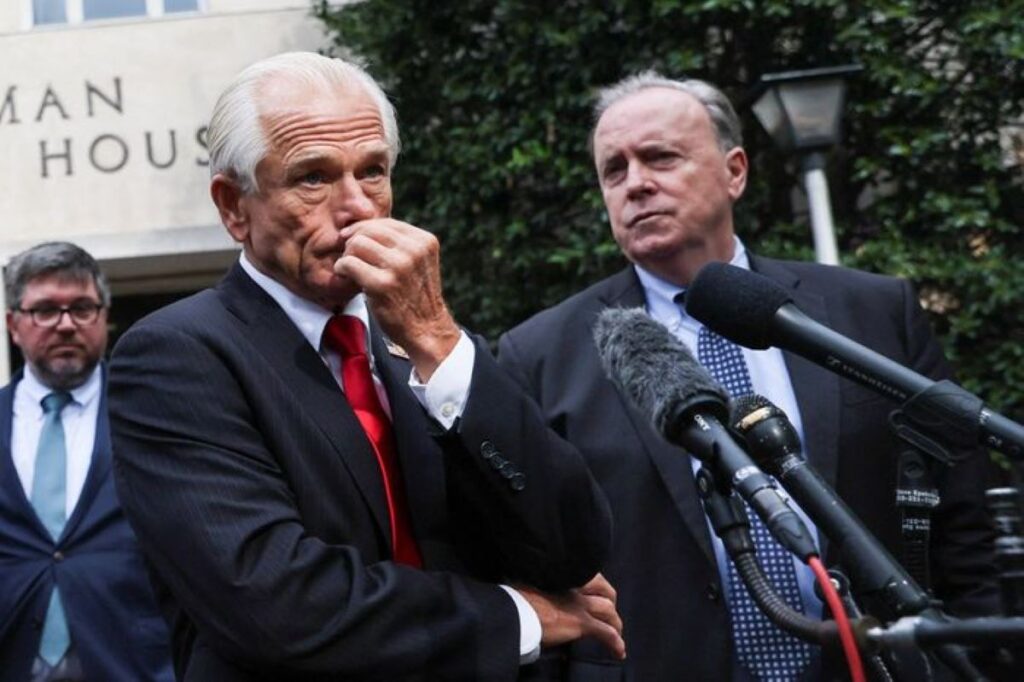
Former Trump White House official Peter Navarro, a central figure in the aftermath of the January 6, 2021, attack on the U.S. Capitol, has been sentenced to four months behind bars for contempt of Congress.
Navarro, who served as a White House trade advisor under then-President Trump, refused to cooperate with a congressional investigation into the events surrounding the Capitol breach. This sentencing follows the conviction of another Trump aide, Stephen K. Bannon, on similar charges.
Navarro’s conviction comes up from his defiance of a subpoena handed out by the House Jan. 6 Committee, which was tasked with investigating the insurrection. The committee spent 18 months conducting an extensive inquiry, interviewing over 1,000 witnesses, holding ten hearings, and acquiring more than one million pages of documents.
In its final report, the panel asserted that Trump had engaged in a “multi-part conspiracy” to overturn the election results and failed to intervene to prevent his supporters from storming the Capitol.
ALSO READ: “I Absolutely Hate Trump!” GOP Voters Say They Are Not Falling for MAGA Again
U.S. District Judge Amit Mehta, who presided over Navarro’s case, expressed his disbelief at Navarro’s claim of accepting responsibility while simultaneously suggesting that the prosecution was politically motivated.
The judge dismissed Navarro’s assertion that he couldn’t cooperate due to Trump invoking executive privilege, pointing out that Navarro had failed to demonstrate that, in this case, executive privilege had indeed been invoked.
Navarro’s attorneys have filed a notice indicating his intention to appeal the conviction and sentence. The judge is allowing the defense to submit a written brief on the question of whether Navarro should remain free pending appeal.
POLL — Should Donald J. Trump Be Allowed to Run for Office?
Throughout the proceedings, Navarro maintained that he believed he was “duty-bound” to assert executive privilege, aligning his defense with claims made by Trump. The former president has consistently denied any wrongdoing related to the Capitol attack, and Navarro’s sentencing adds another layer to the legal challenges faced by individuals connected to Trump’s administration.
The sentencing of Navarro comes after a judge rejected his bid for a new trial. Prosecutors had initially asked for six months behind bars and an imposition of a $200,000 fine. The judge ordered Navarro to pay a $9,500 fine. Woodward later told the judge that he needed to be punished to prove a point. Bannon, who also made executive privilege arguments, was convicted of two counts.
ALSO READ: Court Slams Trump With $83 Million Fine in E. Jean Carroll Defamation Suit
Navarro’s defense had argued that jurors might have been influenced by political protesters outside the courthouse during an eight-minute break in deliberations. The judge ruled that Navarro failed to establish any impact on the verdict and dismissed claims of improper influence.
This development calls attention to the ongoing legal scrutiny surrounding the events of January 6 and the efforts to hold individuals accountable for their roles. As the second Trump aide to be convicted of contempt of Congress, Navarro’s case adds to the broader narrative of legal consequences faced by those connected to the Trump administration in the aftermath of a pivotal moment in U.S. history
You Might Also Like:
Court Sentences Real Estate Developer Found Guilty in $1.4 Billion Fraud Case
Southern California Residents Raise Alarm Over Foul Smell Escaping From Landfill
Voting Company Sues Pro-Trump OAN for Engaging in “Criminal Activities”
Arkansas Authorities Capture Two Jail Escapees After Almost 40 Hours
These States Pay New Residents $20,000 to Settle Down
